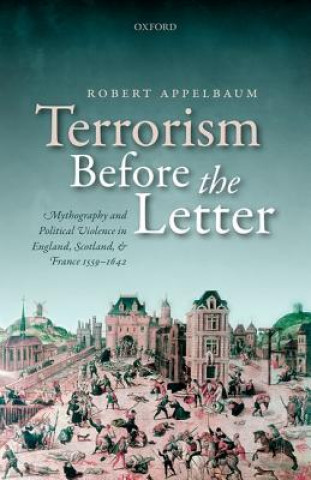
Kód: 09281506
Terrorism Before the Letter
Autor Robert Appelbaum
Beginning around 1559 and continuing through 1642, writers in England, Scotland, and France found themselves pre-occupied with an unusual sort of crime, a crime without a name which today we call 'terrorism'. These crimes were esp ... celý popis
- Jazyk:
 Angličtina
Angličtina - Vazba: Pevná
- Počet stran: 284
Nakladatelství: Oxford University Press, 2015
- Více informací o knize

Mohlo by se vám také líbit
-

Vanishing Word
814 Kč -
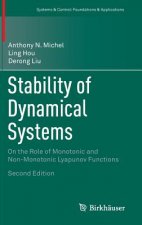
Stability of Dynamical Systems
1585 Kč -

Virginia Curiosities
485 Kč -
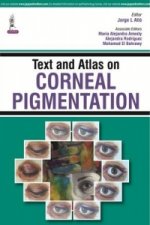
Text and Atlas on Corneal Pigmentation
3880 Kč -

International Directory of Company Histories
16155 Kč -

Die Hexe von Rodenbach
638 Kč -

Analytischer Teil, Halfte 2
10321 Kč
Darujte tuto knihu ještě dnes
- Objednejte knihu a zvolte Zaslat jako dárek.
- Obratem obdržíte darovací poukaz na knihu, který můžete ihned předat obdarovanému.
- Knihu zašleme na adresu obdarovaného, o nic se nestaráte.
Více informací o knize Terrorism Before the Letter
Nákupem získáte 444 bodů
 Anotace knihy
Anotace knihy
Beginning around 1559 and continuing through 1642, writers in England, Scotland, and France found themselves pre-occupied with an unusual sort of crime, a crime without a name which today we call 'terrorism'. These crimes were especially dangerous because they were aimed at violating not just the law but the fabric of law itself; and yet they were also, from an opposite point of view, especially hopeful, for they seemed to have the power of unmaking a systematic injustice and restoring a nation to its 'ancient liberty'. The Bible and the annals of classical history were full of examples: Ehud assassinating King Eglon of Moab; Samson bringing down the temple in Gaza; Catiline arousing a conspiracy of terror in republican Rome; Marcus Brutus leading a conspiracy against the life of Julius Caesar. More recent history provided examples too: legends about Mehmed II and his concubine Irene; the assassination in Florence of Duke Alessandro de 'Medici, by his cousin Lorenzino. Terrorism Before the Letter recounts how these stories came together in the imaginations of writers to provide a system of 'enabling fictions', in other words a 'mythography', that made it possible for people of the sixteenth and seventeenth centuries to think (with and about) terrorism, to engage in it or react against it, to compose stories and devise theories in response to it, even before the word and the concept were born. Terrorist violence could be condoned or condemned, glorified or demonised. But it was a legacy of political history and for a while an especially menacing form of aggression, breaking out in assassinations, abductions, riots, and massacres, and becoming a spectacle of horror and hope on the French and British stage, as well as the main theme of numerous narratives and lyrical poems. This study brings to life the controversies over 'terrorism before the letter' in the early modern period, and it explicates the discourse that arose around it from a rhetorical as well as a structural point of view. Kenneth Burke's 'pentad of motives' helps organise the material, and show how complex the concept of terrorist action could be. Terrorism is usually thought to be a modern phenomenon. But it is actually a foundational figure of the European imagination, at once a reality and a myth, and it has had an impact on political life since the beginnings of Europe itself. Terrorism is a violence that communicates, and the dynamics of communication itself reveal it special powers and inevitable failures.
 Parametry knihy
Parametry knihy
Zařazení knihy Knihy v angličtině Literature & literary studies Literature: history & criticism Literary studies: general
4440 Kč
- Plný název: Terrorism Before the Letter
- Podnázev: Mythography and Political Violence in England, Scotland, and France 1559-1642
- Autor: Robert Appelbaum
- Jazyk:
 Angličtina
Angličtina - Vazba: Pevná
- Počet stran: 284
- EAN: 9780198745761
- ISBN: 0198745761
- ID: 09281506
- Nakladatelství: Oxford University Press
- Hmotnost: 558 g
- Rozměry: 243 × 162 × 22 mm
- Datum vydání: 10. December 2015
Oblíbené z jiného soudku
-

How to Read a Book
303 Kč -
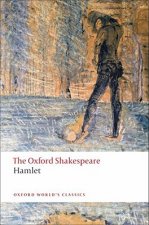
Hamlet: The Oxford Shakespeare
236 Kč -
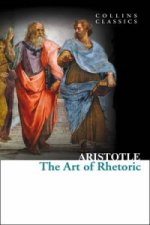
Art of Rhetoric
90 Kč -
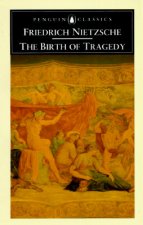
Birth of Tragedy
249 Kč -

Selected Essays
276 Kč -

Complete Short Stories of Ambrose Bierce
493 Kč -

Serpent Power
519 Kč -

Moby-Dick
465 Kč -

Annotated Alice
306 Kč -

Nordic Noir
410 Kč -

Marquis de Sade: A Very Short Introduction
227 Kč -

Children's Fantasy Literature
670 Kč -

Mysteries of Udolpho
286 Kč -

Joseph Andrews and Shamela
226 Kč -
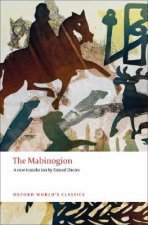
Mabinogion
276 Kč -

The Picture of Dorian Gray
182 Kč -
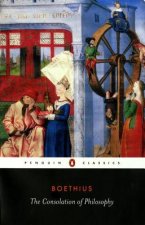
Consolation of Philosophy
276 Kč -

Seven Basic Plots
545 Kč -

Gulliver's Travels
170 Kč -

Life of Samuel Johnson
677 Kč -

Powers of Horror
976 Kč -

Sejong Korean Student Book 2A - English Edition, m. 1 Audio
733 Kč -
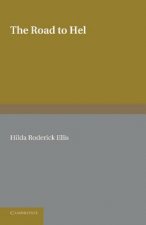
Road to Hel
1460 Kč -

Anna Karenina
217 Kč -
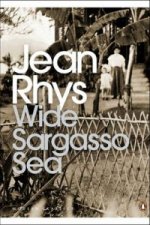
Wide Sargasso Sea
223 Kč -
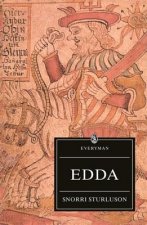
Edda
240 Kč -

Finn and Hengest
249 Kč -
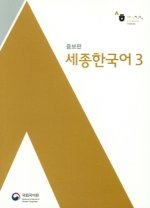
Sejong Korean 3, m. 1 Audio
681 Kč -
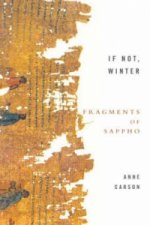
If Not, Winter: Fragments Of Sappho
464 Kč -

Africa's Tarnished Name
101 Kč -

Complete Poetry
219 Kč -

Captain is Out to Lunch
276 Kč -

Devils
268 Kč -

Two Treatises of Government
254 Kč -
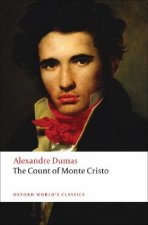
Count of Monte Cristo
276 Kč -

Sejong Korean 2 (Korean+English Version), m. 1 Audio
681 Kč -

Moveable Feast
254 Kč -

Moveable Feast
276 Kč -
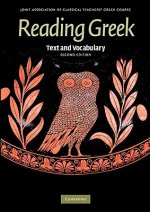
Reading Greek
946 Kč -

Dream Story
276 Kč -
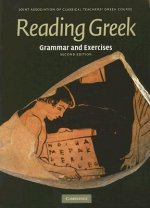
Reading Greek
1072 Kč -

Analysis of Donna Haraway's A Cyborg Manifesto
233 Kč -
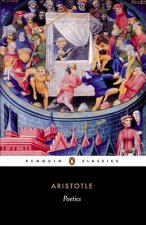
Poetics
276 Kč -
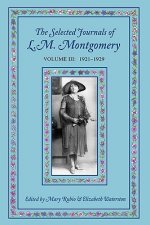
Selected Journals of Lm Montgomery Volume III 1921-1929
514 Kč -

Leaves of Grass
442 Kč -
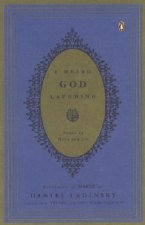
I Heard God Laughing
382 Kč -

Tragedy of King Richard III: The Oxford Shakespeare
234 Kč -

Sejong Korean Student Book 1B - Korean Version, m. 1 Audio
733 Kč -

Wild Ass's Skin
316 Kč
Osobní odběr Praha, Brno a 12903 dalších
Copyright ©2008-24 nejlevnejsi-knihy.cz Všechna práva vyhrazenaSoukromíCookies



 Vrácení do měsíce
Vrácení do měsíce 571 999 099 (8-15.30h)
571 999 099 (8-15.30h)